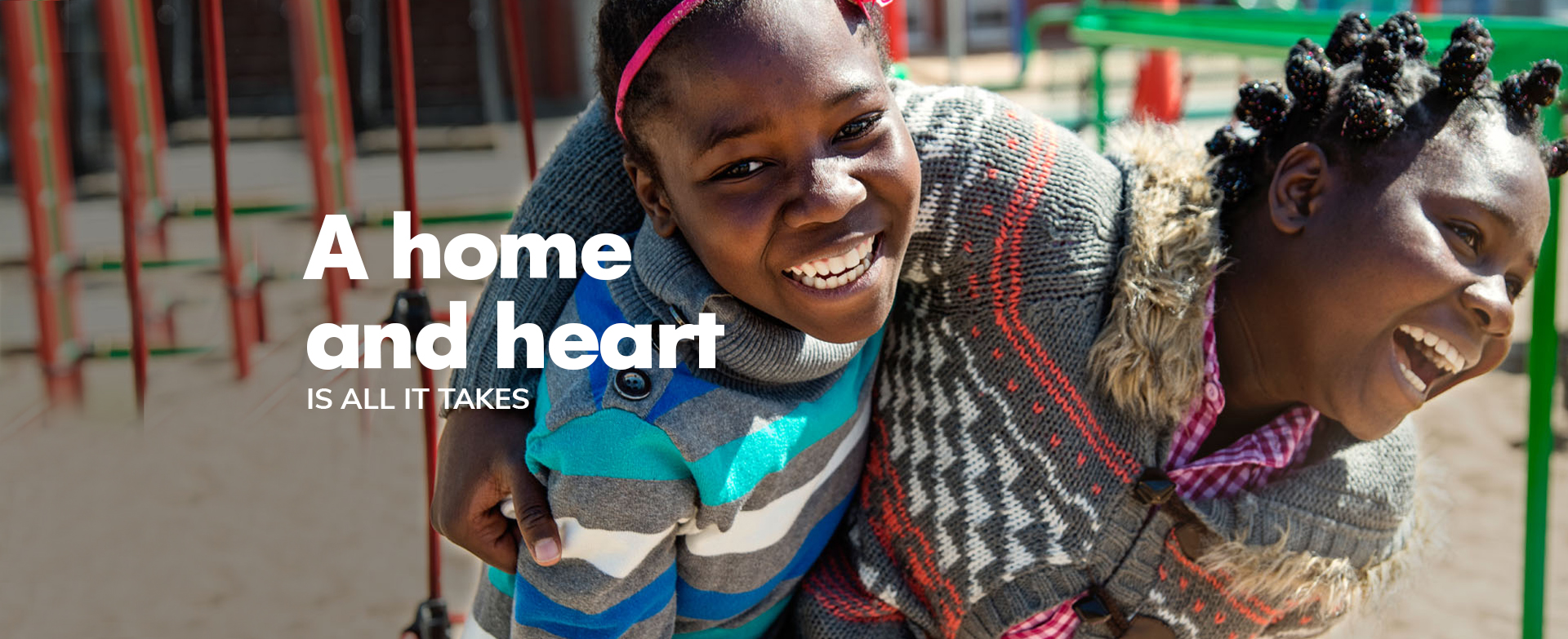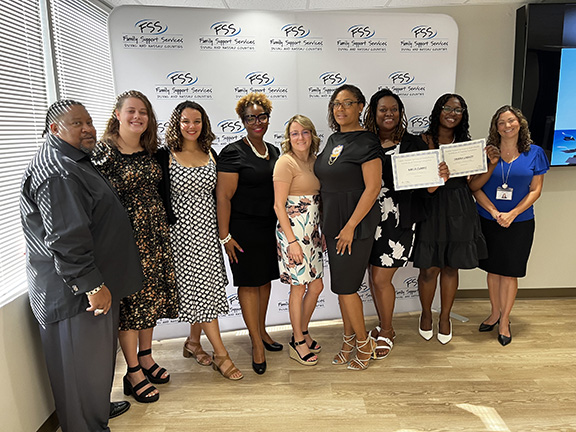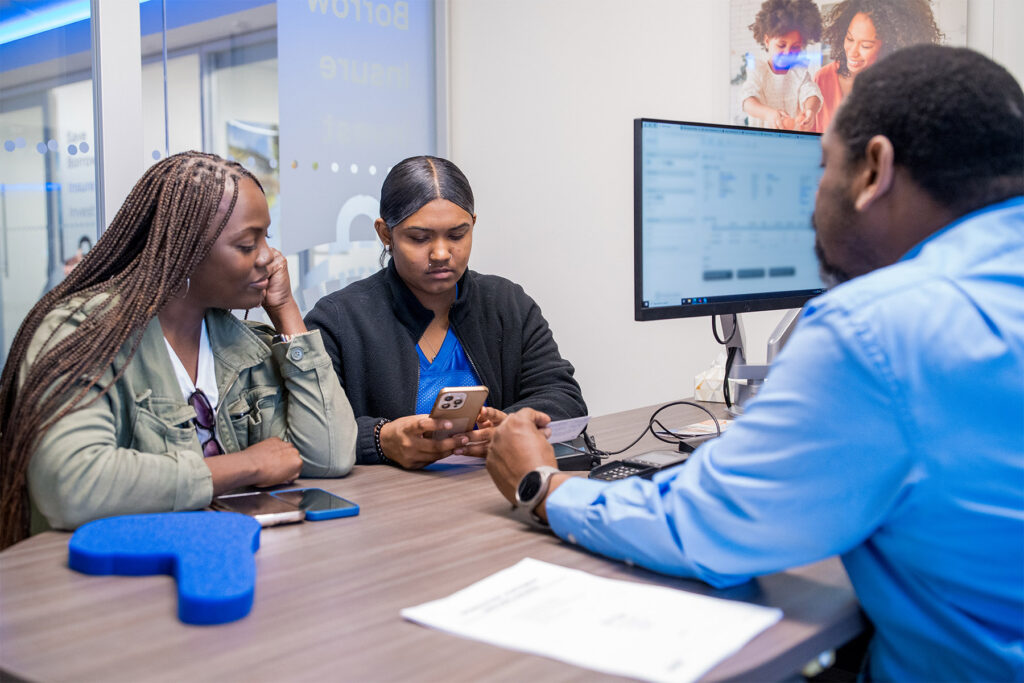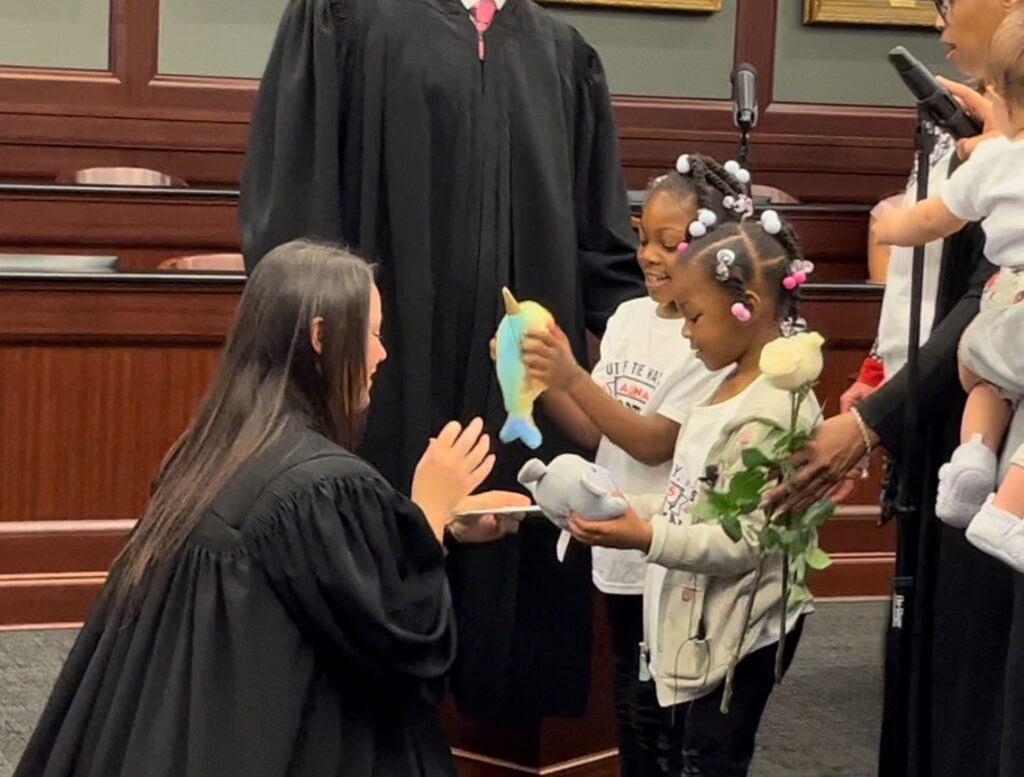
Family Support Services’ program helps kinship families and foster youth shop for the holiday foods...
Read More
Children and teens who are in foster care are just like other kids. They go to school, they have friends and participate in extracurricular activities, they play sports or read books, and they live right here in our community. The difference is that they’ve experienced a negative family situation, trauma, abuse, or neglect, which makes living at home unsafe—at least for the time being. While we work with parents to resolve issues and overcome challenges, with the goal of reuniting them with their kids, the children need a safe, stable, and temporary place to live.

1. Understand their needs
When you choose to foster a child, you should be prepared to deal with trauma, sensitivities and developmental needs. Understanding, compassion and patience are core virtues that are necessary when becoming a child’s caregiver.
2. Protect and nurture
Be a caregiver, a mentor, an understanding ear and a supportive role model. Be involved in their life and put forth the same unconditional effort you would if he or she were your biological child.
3. Support family relationships
As a foster parent, you’ll not only care for the child in your home, but you’ll encourage the child to maintain a positive relationship with his or her parents, in hopes that the family will be reunified once the case plan goals have been met.
4. Promote lifetime relationships
As a role model, and one who will leave a lasting impression, you’ll connect children to safe, nurturing relationships such as mentors, teachers, coaches, friends and extended family.
5. Be a part of a professional team
When you become a foster parent, you join a network of families and professionals who provide support, encouragement and advice. You’ll also connect and network with the FSS team, including a licensing counselor, case manager, therapists and more.
To learn more about becoming a foster parent, join us in a virtual or in-person foster care information session (also called FIS). To register for an event or for more information, email recruiter@fssnf.org. You will receive a Zoom link after registering.
Upcoming Information Session Times and Dates:
February 2026
Wednesday, Feb. 18, 2026 – Community Tables Virtual FIS – 6:30-7:30 p.m. via Zoom
Register Now
March 2026
Monday, March 2, 2026 – Community Tables Virtual FIS – 6:30-7:30 p.m. via Zoom
Register Now
Tell us a little bit about yourself and we’ll give you the insight and support you need to become a foster parent.
If you’re a relative to a child who has been placed with you by DCF, please register to become a licensed relative caregiver.
You must:
Qualified adults can be licensed to foster, regardless of marital status, sexual orientation, age, gender, home ownership or income level.
Generally, 10-14 weeks. The process includes an in-person interview, home visit, training and completed home study.
You may have pets, however, Rottweilers, pit bulls and certain species of exotic pets may prevent you from meeting licensing requirements.
We work with you to match children based on preferences, gender, age, geographic locations and lifestyle.
Each foster child’s case is different. While the primary goal is to reunify the child with their biological family, in cases where children cannot be reunified with their parents, the focus shifts to finding adoptive families. Visit heartgalleryjax.org to see children currently in need of a forever family.
Yes, a monthly stipend helps reimburse associated costs for housing, transportation, clothing and food. The daily rate is set by the state and is based on the child’s age and individual needs.
Yes, you’ll receive continuous support from FSS, the case manager, guardian ad litem, counseling services, crisis support, and others in the community. Respite care is available.
Please review our foster care resources here or download the Foster Parent Handbook.

Family Support Services’ program helps kinship families and foster youth shop for the holiday foods...
Read More
Graduates complete seven weeks of training, take oath at Family Support Services JACKSONVILLE, FLA. (Aug....
Read More
TEENS IN FOSTER CARE SIGN ON FOR FINANCIAL SUCCESS WITH NEW FSS VYSTAR FOSTERING FINANCIAL...
Read More
There were hearts, flowers, candy, and not a dry eye in the courtroom, as 12...
Read More